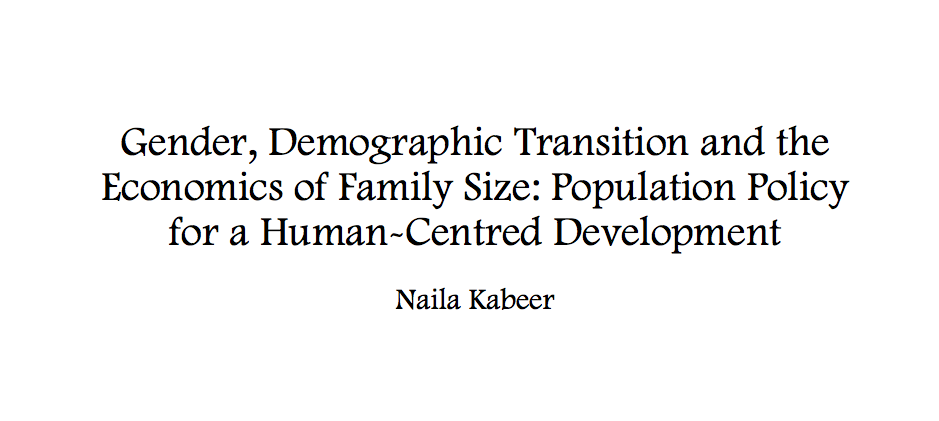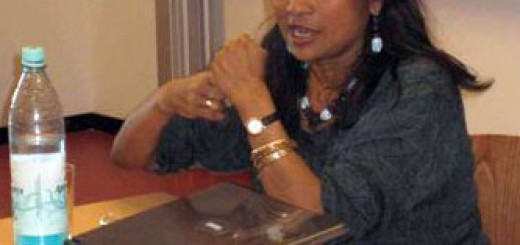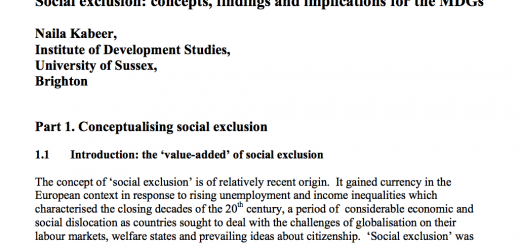‘Gender, Demographic Transitions and the Economics of Family Size: Population Policy for a Human-centred Development’, UNRISD Occasional Paper No. 7

 In preparation for the Fourth World Conference on Women which was held in Beijing in September 1995, UNRISD initiated an Occasional Paper Series reflecting work carried out under the UNRISD/UNDP project, Technical Co-operation and Women’s Lives: Integrating Gender into Development Policy. In view of the intensified efforts in the aftermath of the Conference to integrate gender concerns into policy analysis and formulation, and the progress of the UNRISD/UNDP project, the Institute intends to publish several additional papers in this series to facilitate the dissemination of the project’s findings.
In preparation for the Fourth World Conference on Women which was held in Beijing in September 1995, UNRISD initiated an Occasional Paper Series reflecting work carried out under the UNRISD/UNDP project, Technical Co-operation and Women’s Lives: Integrating Gender into Development Policy. In view of the intensified efforts in the aftermath of the Conference to integrate gender concerns into policy analysis and formulation, and the progress of the UNRISD/UNDP project, the Institute intends to publish several additional papers in this series to facilitate the dissemination of the project’s findings.
The activities of the project have included an assessment of efforts by a selected number of donor agencies and governments to integrate gender issues into their activities (Phase I); participating countries included Bangladesh, Chile, Jamaica, Mali, Morocco, Uganda and Viet Nam. The current action-oriented part of the project (Phases II and III) involves pilot studies in five of these countries (Bangladesh, Jamaica, Morocco, Uganda and Viet Nam), the goal of which is to initiate a process of consultation and dialogue between gender researchers, policy-makers and activists aimed at making economic and social policies more accountable to women.
This paper builds on one of the themes that has been extensively explored in the UNRISD/UNDP Occasional Paper Series and in the policy dialogues that have been carried out in the participating countries: the need to scrutinize economic/social policies from a gender perspective. It provides an in-depth analysis of population debates and policies, arguing for the need to place women’s human rights and well-being at the centre of both policy-making processes and academic debates.



